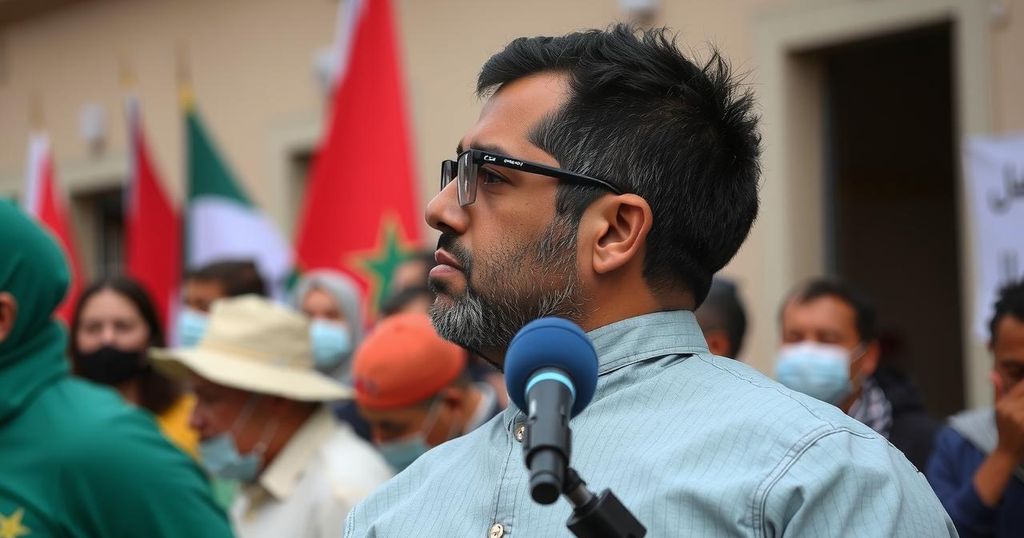Said Ait Mahdi, a prominent Moroccan activist, received a three-month prison sentence for leading protests against the government’s inadequate earthquake response. Advocacy groups have condemned the sentence as politically motivated and arbitrary, emphasizing the need for accountability amidst ongoing recovery efforts that have left many victims struggling in temporary shelters. The situation highlights increased tensions between civil society and the state in Morocco.
In a significant development in Morocco, prominent activist Said Ait Mahdi has been sentenced to three months in prison after leading protests against the government’s response to the devastating earthquake in September 2023. The 32-year-old president of a leading activist group in the affected Al Haouz region, he faces charges that include defamation, assault, and inciting unauthorized demonstrations. Alongside a prison sentence, he is required to pay more than $1,000, as confirmed by his attorney Isaac Charia.
The earthquake, measured at 6.8 magnitude, resulted in catastrophic destruction, claiming nearly 3,000 lives and severely damaging over 60,000 homes and 585 schools. Demonstrations have been a response to perceived mismanagement by local and regional officials, with many still living in temporary shelters. Ait Mahdi is notably the first activist from this region to receive such a sentence, amidst a climate of civil dissent and growing frustrations regarding recovery efforts.
Advocates for civil liberties have denounced Ait Mahdi’s conviction, characterizing it as politically motivated and a reaction to his activism for earthquake victims. The Moroccan Association for Human Rights labeled his incarceration as arbitrary, while a coalition of NGOs emphasized that the charges were part of broader attempts to suppress dissent and conceal governmental failings in disaster response.
This earthquake further highlighted existing inequities in Morocco, as it struck a region dominated by indigenous minority groups, already suffering from inadequate infrastructure. The Moroccan government has committed over $11.5 billion for recovery and reconstruction over the coming years, yet the pace of rebuilding has drawn criticism from activists and civil groups. Protests continue, with groups like the Civil Coalition of the Mountain advocating for immediate action and better support for those affected by the disaster, as demonstrated by a recent rally in the capital, Rabat.
Last month, Ait Mahdi received substantial support during his trial, with hundreds of his supporters rallying outside the Marrakech court, calling for his release and protesting against the perceived injustices of his sentencing. The activism surrounding this case highlights the ongoing struggle for accountability and the need for reform in post-disaster recovery efforts in Morocco.
Said Ait Mahdi’s imprisonment has garnered extensive attention amidst widespread protests against the Moroccan government’s earthquake response. The earthquake, which struck in September 2023, resulted in immense loss of life and property destruction, raising questions regarding the adequacy of recovery efforts. Activists argue that the government has failed to effectively manage the aftermath, resulting in heightened social inequalities, particularly among indigenous communities. Ait Mahdi’s sentencing is viewed by human rights advocates as indicative of a broader crackdown on dissent and a tactic to stifle voices advocating for accountability and justice in disaster recovery processes.
The sentencing of Said Ait Mahdi not only underscores the risks faced by activists in Morocco but also brings to light the contentious dynamics between the state and civil society amid a humanitarian crisis. His conviction has instigated further protests and drawn international calls for re-evaluation of governmental conduct in disaster management. As debates surrounding the rights of activists and victims of the earthquake continue, the path toward justice and effective recovery remains fraught with challenges.
Original Source: www.thecanadianpressnews.ca






